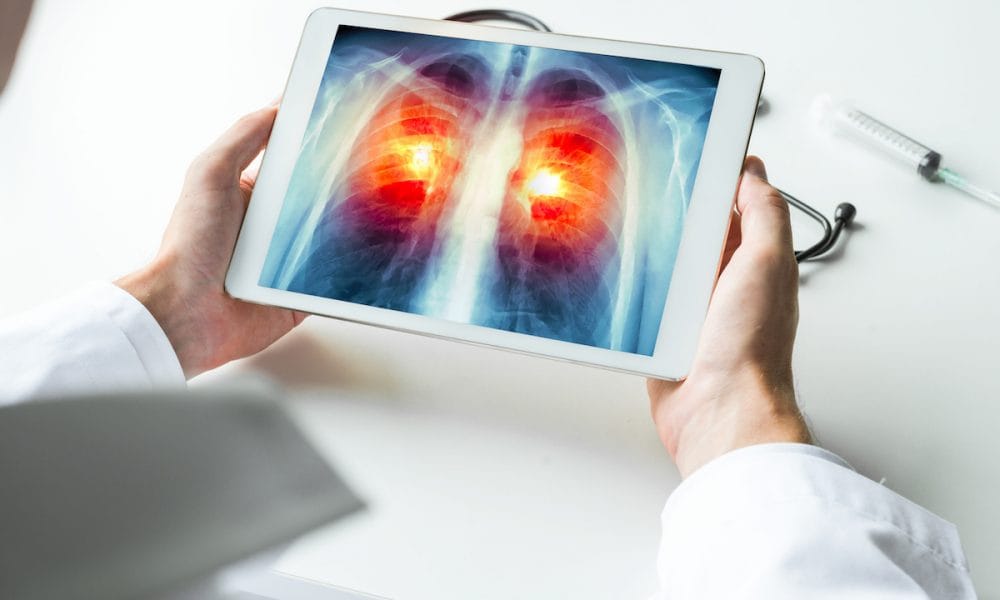Lung cancer is a serious disease that occurs when cells in the lungs grow uncontrollably. It can spread to other body parts and become life-threatening if not diagnosed and treated early. Lung cancer is a common type of cancer worldwide, and approximately 2 million new cases are diagnosed each year. Therefore, it is essential to understand the early warning signs and symptoms to detect the disease at an early stage. In this blog, we will discuss the early warning signs and symptoms of lung cancer, its risk factors, diagnosis, treatment, and prevention measures.
Early Warning Signs and Symptoms
These are the early warning signs and symptoms of lung cancer:
Persistent cough: A persistent cough that lasts for more than a few weeks and does not go away even after taking medication is a warning sign of lung cancer.
Shortness of breath: Feeling breathless or having difficulty breathing, especially when performing activities that were previously easy to do, can be a sign of lung cancer.
Chest pain: Pain in the chest, back, or shoulder that worsens during coughing, laughing, or deep breathing is a common symptom of lung cancer.
Unexplained weight loss: Losing a significant amount of weight without any reason, such as diet or exercise, could be an indication of lung cancer.
Fatigue: Feeling tired or weak all the time, even after resting, can be a symptom of lung cancer.
Risk Factors
Several risk factors increase the likelihood of developing lung cancer. The most significant risk factor is smoking. Smoking cigarettes, cigars, or pipes increases the risk of lung cancer by up to 15-30 times. The lung cancer’s second most common cause is exposure to radon, a colorless, odorless gas that occurs naturally in the soil. People with a history of lung cancer in family, exposure to air pollution, and workplace exposure to chemicals such as asbestos and diesel exhaust fumes are also at increased risk of developing lung cancer.
Diagnosis
Diagnosing lung cancer requires several tests, including imaging tests, such as X-rays, CT scans, and MRI scans, to create detailed images of the lungs. A biopsy, a procedure that involves taking a small sample of tissue from the lungs, is also necessary to confirm the diagnosis.
Treatment
Treatment for lung cancer vary on the stage and type of cancer, as well as the patient’s overall health. The treatment options include:
Surgery: Surgical removal of the cancerous tumor is the most common treatment for lung cancer that has not spread beyond the lungs. The surgery can be performed either through a large incision in the chest or through several small incisions.
Chemotherapy: It is a treatment method that involves the drugs use to kill cancer cells. These drugs can be administered orally or through intravenous injections and are often combined with radiation therapy for maximum effectiveness.
Targeted therapy: It involves the use of drugs that specifically target the proteins or genes responsible for the growth of cancer cells. This treatment method is frequently used in conjunction with chemotherapy to increase its effectiveness.
Immunotherapy: It is a form of treatment that helps the immune system of body to recognize and attack cancer cells.
Prevention
Prevention is the best method to reduce the risk of developing lung cancer. The following measures can help prevent lung cancer:
Quit smoking: Quitting smooking is the best thing you can do to reduce lung cancer risk.
Reduce exposure to radon: Radon is a naturally occurring gas that can enter homes through cracks in the foundation or walls. Lung cancer can be prevented by testing your home for radon and by taking steps to reduce exposure.
Improve indoor air quality: Avoid using products that release toxins into the air, such as cleaning supplies and air fresheners. Proper ventilation can also help improve indoor air quality.
Regular exercise and healthy diet: Regular exercise and a healthy diet can help in reducing the risk of lung cancer.
Conclusion
Lung cancer is a devastating disease that can be life-threatening if it is not detected and treated early. It is essential to understand the early warning signs and symptoms, risk factors, diagnosis, treatment, and prevention measures. If you experience any particular symptoms of lung cancer, you should seek medical attention immediately. The Cancer hospital in Noida provides excellent medical care for cancer patients, and the Best Oncologist in Noida is equipped with the latest technology to diagnose and treat lung cancer. Prevention is the best method to reduce the risk of developing lung cancer, and quitting smoking and reducing exposure to radon are essential measures that can be taken to prevent lung cancer. By taking these steps, you can reduce the risk of developing lung cancer and lead a healthy life.






